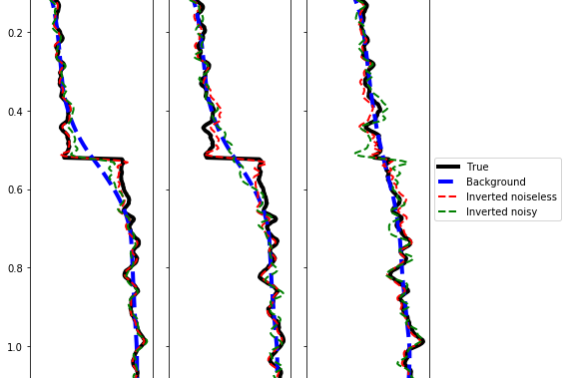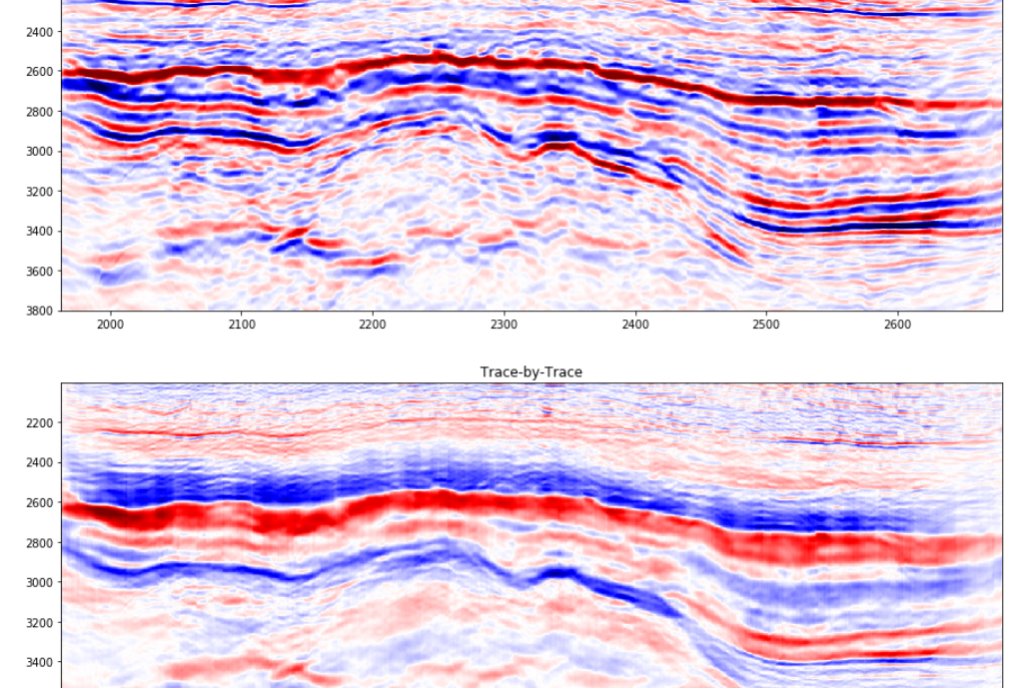Sensitivity analysis and Information Theory as a support to reservoir characterization through seismic inversion
- Start date: 2019
- End date: 2020
- Funded by: Eni S.p.A.
- Topic: Sensitivity analysis of seismic characterization of reservoirs through inversion under uncertainty; model benchmarking through information theory metrics.
In the context of seismic data inversion, the uncertainty associated with modeling framework selection is typically evaluated on the basis of the experience of involved experts. This influences evaluation and propagation of uncertainty within the whole workflow. Therefore, it is critical to (i) identify which step/choice is associated with the highest degree of subjectivity; (ii) reformulate such choices within a specific theoretical framework enabling rigorous uncertainty quantification. In this sense, demarcation between different types of uncertainties, i.e., (a) parametric and (b) modeling, is critical. The project entails three principal objectives:
- Sensitivity analysis of the results of the reservoir seismic characterization (e.g., geological properties maps) with respect to different parameters/models. Such analysis allows to identify how the output variability/uncertainty might be attributed to different steps of the workflow.
- Sensitivity Analysis of the Objective Function employed in the seismic inversion phase with respect to the elements involved in the seismic inversion workflow. This allows to identify which elements mostly affect the calibration, thus driving the choice of elements to be accurately considered in the workflow.
- Model – Benchmarking through Information Theory metrics. Evaluation and comparison of the performance of different models, based on the correspondence between predictions and reference data.




